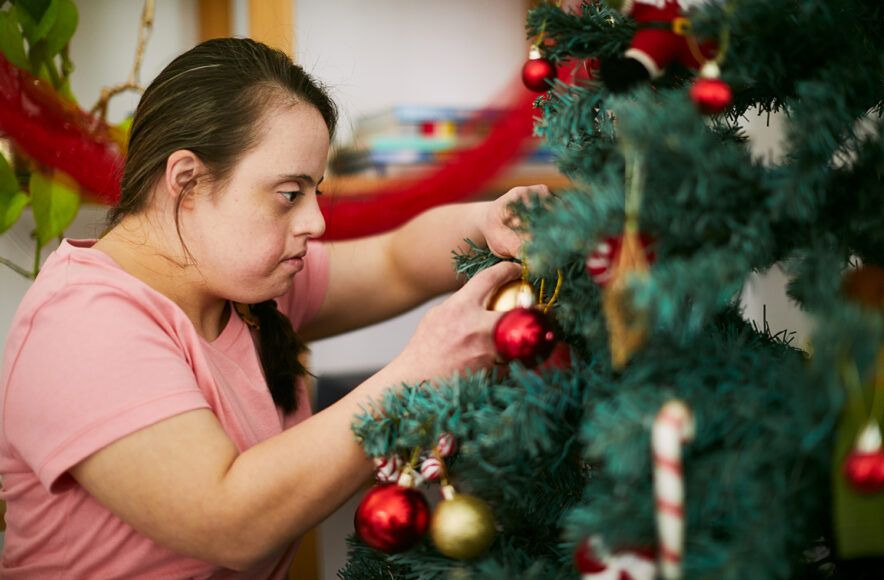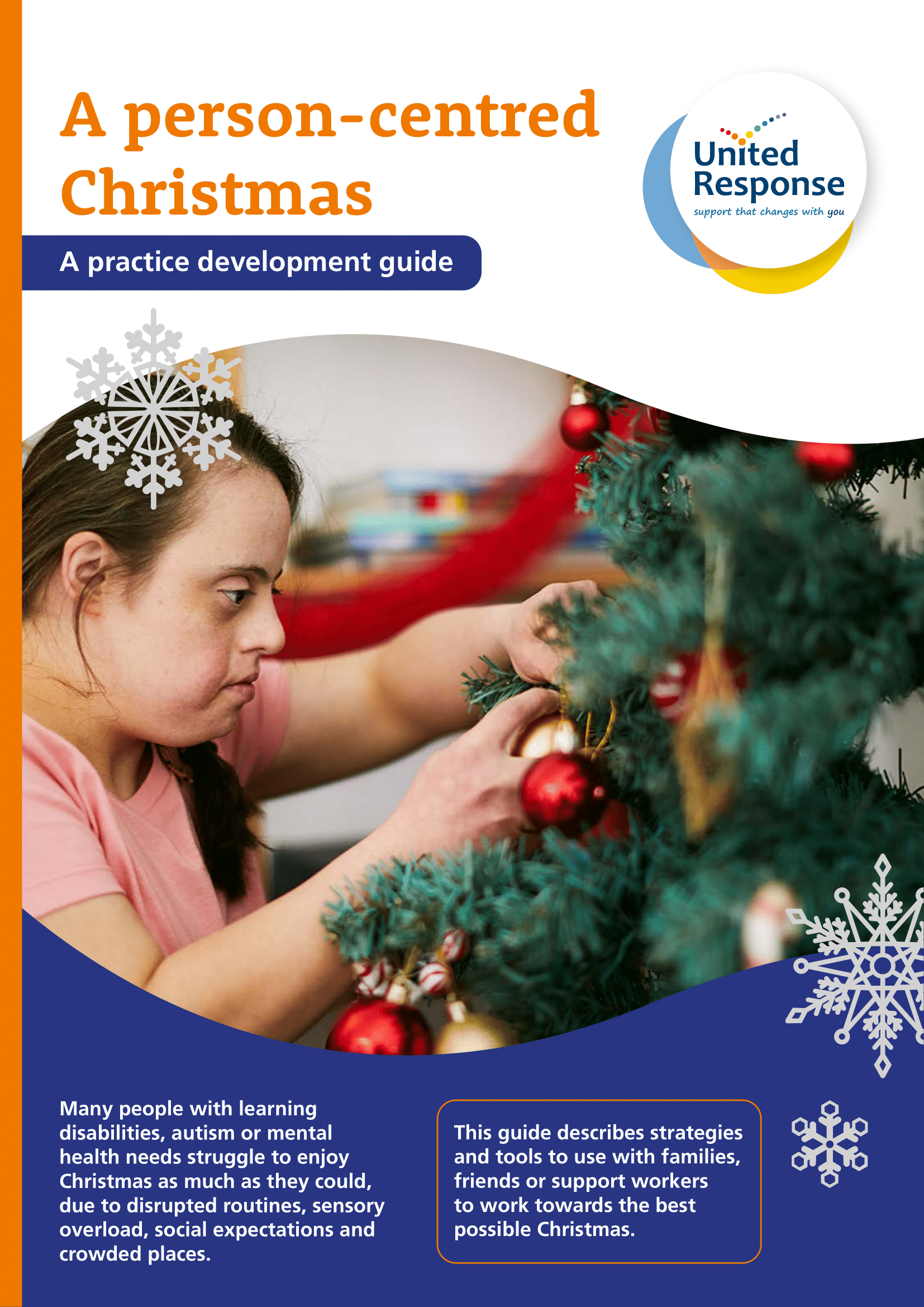Have a good Christmas(?): professional and real-life strategies and tips to help those who find the festive season tricky

Yes I know, it’s much too early to be thinking about Christmas! It feels like we’ve only just made it through a hot dry summer, for goodness sake! But for many people, this time – autumn leaves turning, nights beginning to get noticeably longer and colder – very much isn’t too early to be planning for Christmas.
While for many of us Christmas is wonderful, for people who struggle when routines are changed, or with sensory overload, crowds, surprises and unwritten rules, Christmas can be very difficult.
We have gathered together a range of hints, tips and strategies for helping with Christmas difficulties, from some of our support workers and relatives of people we support. We’re sharing them with everyone else in United Response – and indeed anyone else who’s interested – in our ‘A person-centred Christmas’ guide.
Our person-centred Christmas guide will help if you have questions like these:
What can we do about opening presents? We like to take it in turns, but now this always ends in tears and it spoils everything.
How can we help Jenny understand that it’s not Christmas yet, even though there’s Christmas decorations in the shops?
We’ve given up on crackers in our house. They’re just too alarming for Conrad. What else can we do?
Christmas dinner has become tense every year. How can we make it better for everybody?
Our person-centred Christmas guide provides solutions to these and many other dilemmas.
Here are some examples from our person-centred Christmas guide of what to do:
- Talk to the person’s family and any long-term friends and ask about what the person will expect to happen. What have they experienced in the past? What strategies have been used previously to reduce any anxiety and distress? When do they normally start talking to the person about Christmas? Perhaps that’s a good time for you to do the same.
- Plan alternative routes for transport to allow for busier roads and public transport – particularly if the person you support finds waiting and delays difficult.
- Consider a gradual change to the physical environment, adding any decorations a bit at a time so people can get used to them, or putting the tree up undecorated for a few days before adding to it. Find ways to support everyone to play a part in this change – it’s usually helpful to avoid the sudden and extreme change involved in the traditional way of putting up decorations. For some people it will also be important to be in control of this adjustment of their environment.
- Think about crackers. You can take them apart in advance to remove the bang or to substitute a more suitable gift inside – and then put them back together ready for the day. Or you can make them with the person so they know what to expect.
- Consider a calendar countdown so the person can see days and events that will happen before Christmas. Use pictures of people, places and events to mark out the days. Support the person to cross them off.
- Remember that your aim is to create a person-centred Christmas, rather than anybody else’s expectation of what Christmas should look like – and it doesn’t have to be the “best Christmas ever”.
- If a person’s been away from home for some of the festive period, but needs to be part of taking down the decorations, save some for them to do.
- Use the same visual timetable and countdown approach to forthcoming events and activities after Christmas.
Real-life scenarios and strategies
Our guide also includes some real-life scenarios to illustrate some of the difficulties that arise because Christmas can be such a big thing, and because we all have expectations about what counts as a good Christmas:
Roy’s mother told us he doesn’t like a Christmas Dinner and prefers a plate of ham and cheese sandwiches and a packet of crisps on Christmas Day. I had to really stop myself from bursting out with ‘But that’s not a proper Christmas Dinner’
The guide describes suggestions in a sequence: through early preparation and then the lead up to Christmas. It provides hints and tips for the day itself and also for the period afterwards. We’ve also provided some of the popular ways to record personal preferences and coping strategies, and for planning and reviewing what’s worked well and what hasn’t.
As we listened to the successful strategies that people have developed, it became very clear that starting to prepare early was pretty vital – and that’s why we’re talking about it now. If you have any ideas that we haven’t included do let us know so we can share your wisdom in future versions of the guide:
